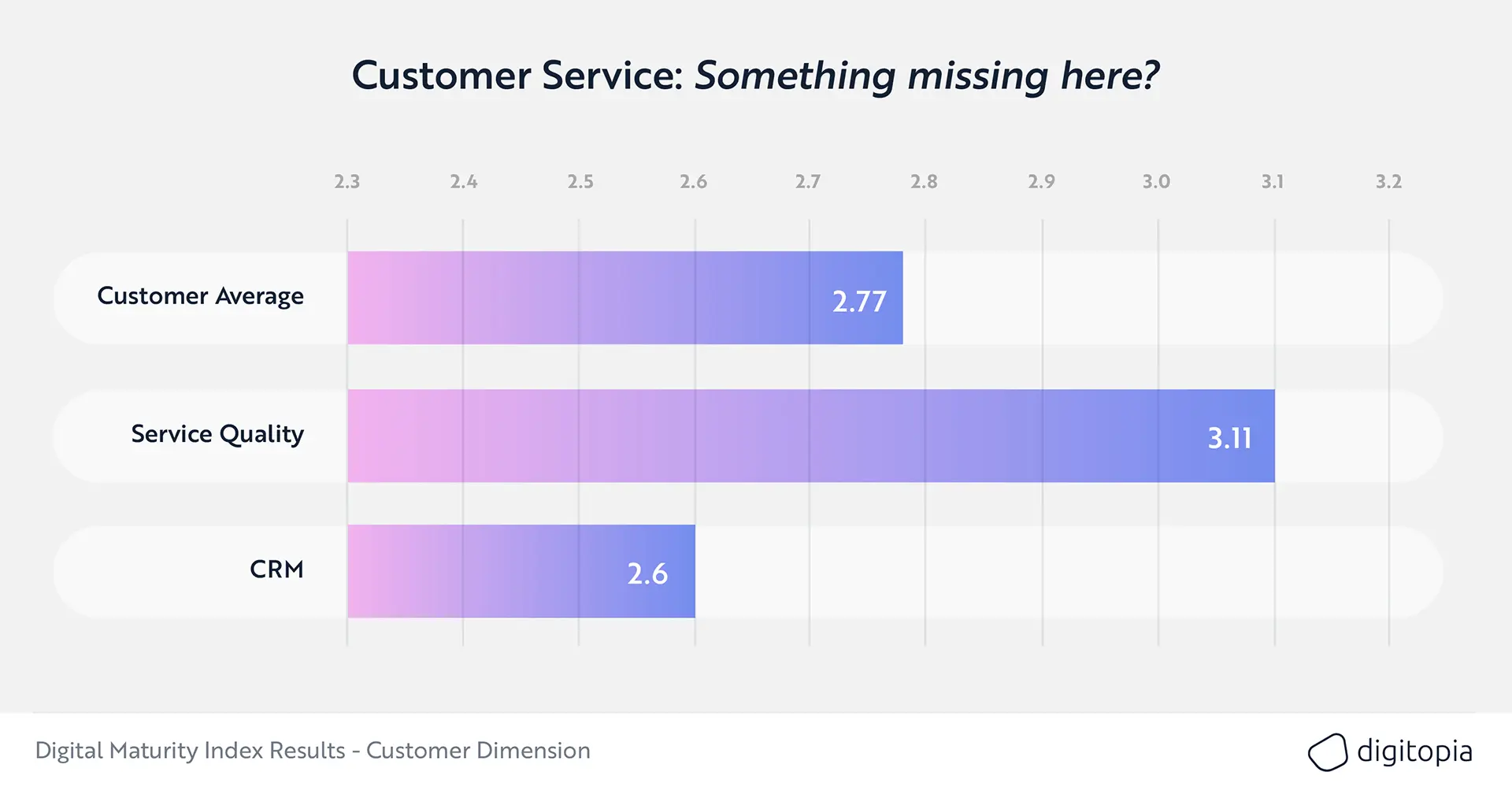
Service is unique in that it is the culmination of a range of different facets that combine to provide premium quality. However, based on our analysis it is clear that organisations are continuing to struggle to define the best return on investment in service to maximise customer satisfaction.

Service quality, defined in our Digital Maturity Index as the quality of interactions between customers and the company, has continued to score a reasonable result throughout our assessments of different organisations. 3.1 indicates a solid effort, with organisations investing in the training and development of their service teams to deliver a good standard of service.
However, what of the systems and tools that support service agents to deliver quality? Well, across industries we are seeing organisations consistently underinvest in their service systems.
The customer journey indicates a rigorous mapping of key touchpoints, as well as the collection and application of data associated with said interactions to improve service standards. Customer Relationship Management (CRM) tools provide service teams with a platform to log interactions and implement systems-based solutions for customers. These digital aspects of service standard consistently fall some half a level in the DMI behind service quality.
Why is this the case? Many organisations are still heavily focussed on physical interactions, failing to take into consideration the importance of digital systems in customer satisfaction. We see organisations prioritising feedback from physical interactions as key, neglecting those consumers who might enjoy their interactions with staff but ultimately become frustrated by poor systems in place to resolve their issue.
Effective customer journey mapping and software systems can dramatically improve the efficiency and speed of customer problem resolution, arguably the most important factor for modern customers who are used to a rapid turnaround on their issues.
We recommend that organisations large and small recognise the value of digital systems and prioritise establishing the tools their service teams need to succeed, providing a solid foundation for excellent service as early as possible in their journey.

